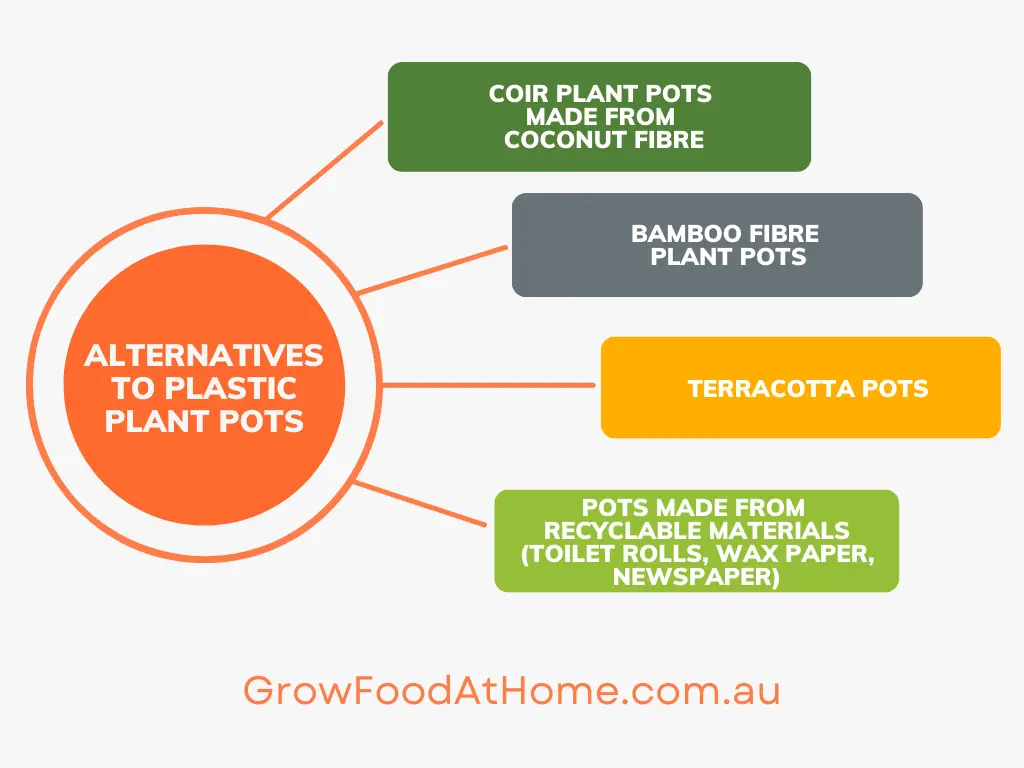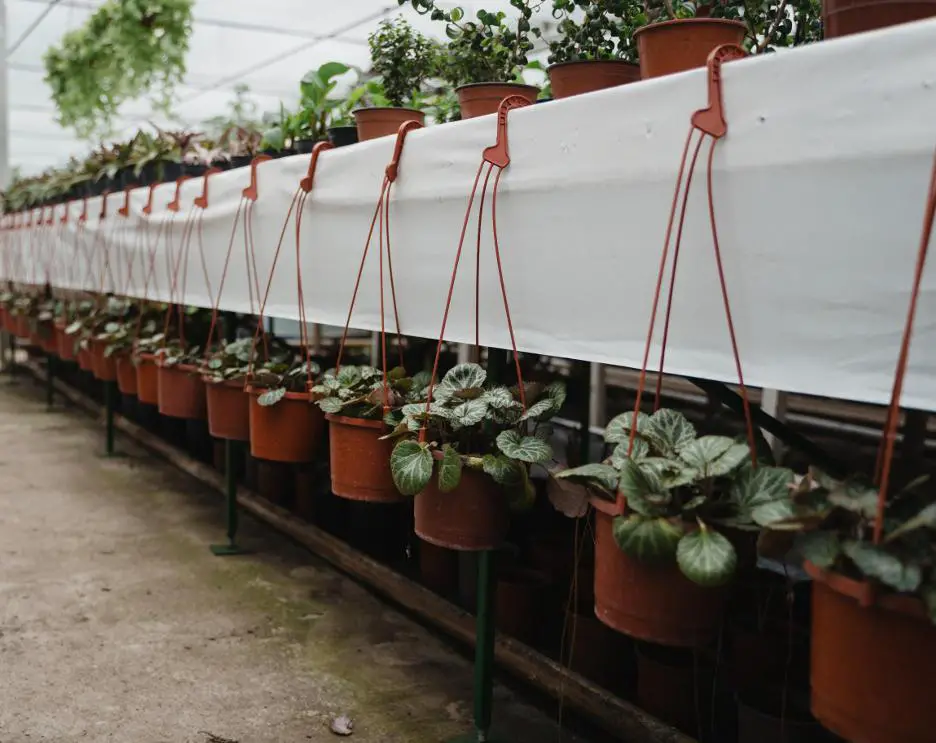If you are into gardening, you might have noticed that almost everything you buy, whether it is a plant in a pot, compost, soil or garden tools, will come in some sort of plastic. The problem with plastic is that it could take anywhere between 20 to 500 years to decompose and it is polluting our environment.
What can we use instead of plastic plant pots? In this article we are going to talk about some eco-friendly alternatives.
What is wrong with plastic pots?
The biggest issue with plastic plant pots is that they cannot be easily recycled. Recycling facilities sort plastic items by bouncing an infrared beam on them, since black plastic absorbs light, it cannot be sorted and goes straight through the system and off to landfill or incinerated for energy. Most black or dark color plastic use carbon to make the color, which absorbs the beam so reader can’t identify the resin.
Thanks to modern technology and increasing awareness on sustainability, some recycling centers are able to accept some plastic pots, check the label at the bottom of the plant planter and contact your local recycling center if you are unsure.
Beware of toxic plastic
Not all plastics are harmful and toxic but many are, some cheap plastic pot or planters are laden with toxic chemicals so it is recommended to dispose of them if they have been scratched or damaged because they are more prone to leaching out chemicals.
If you plan to grow fruits, vegetables or herbs in your home, this is important to consider. You wouldn’t want the planters to leak harmful toxins into the soil and actually negate the benefits of growing your own food organically at home.
Companies and innovators trying to reduce this trend
There are some companies and innovators looking for alternatives to this issue. For example, some of them have started to introduce colored plastic plant pots which does not absorb the beam light so they can be picked up at some recycling centers.
Other companies have decided to create pots from eco-friendly materials such as:
- Coir plant pots made from coconut fibre
Coir Pots are made from 100% biodegradable coconut fibre. It is an eco-friendly alternative to plastic pots. Plants in coir pots can be planted straight into the ground avoiding transplant shock and promoting good root distribution so plants don’t become pot-bound.
- Bamboo fibre plant pots
Bamboo is one of the most useful materials, is harder than oak, and does not swell or shrink like other woody products making it a great material for making plant pots. It is biodegradable and comes in different colors giving it a modern look.
Bamboo pots are made by mashing up bits of left over from making furniture and other things, and moulded into plant pots using binding agents such as resin or cornstarch, heated and pressurized.
- Terracotta pots
Terracotta is made from clay, it is not biodegradable but it can be crushed into small pieces and recycled to make new cladding for other projects. Terracotta is and eco-sustainable material for its resistance to heat and climate and, its longevity, strength and easy process of manufacturing.
Home alternatives to plastic plant pots
Reducing the use of plastic in our garden doesn’t need to be expensive. It is possible to re-use items that are lying around the house such as toilet rolls with the bottoms folded over are great for seeds, newspaper or wax paper can also be used to create small pots.
The issue with this recyclable alternatives is that they are not suitable to transport plants between places (eg. from wholesalers to nurseries)
Re-using plastic pots is also a good alternative if you already have some empty pots at home. Make sure you washed them with soapy water before reusing them to eliminate any plant diseases that they might harbour.
Also, you might consider innovative gardening, by reusing some old items in a creative way you can have your own innovative garden.


If you are a gardener, there are many alternatives that you can use instead of plastic plant pots. There are biodegradable materials such as coir, bamboo and paper that are used to make plant pots, you could reuse your existing pots, use terracotta pots or, you could start your own innovative garden by using old items lying around the house.
